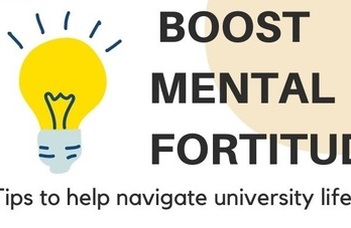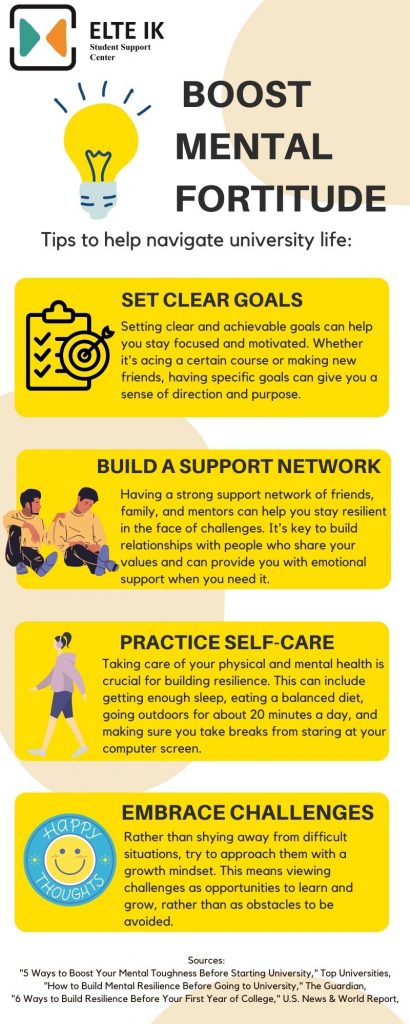How international students can get acclimated to their new environment

International students often face several challenges when adjusting to a new environment, including language barriers, cultural differences, and social isolation. However, with the right resources and support, it is possible for these students to successfully navigate their new surroundings and make the most of their study abroad experience. Socio-cultural adaptation and psychological adaptation are both key factors in determining an international students’ success and satisfaction rate.
Written by: Shantal Fierro (psychology fieldwork student at the Student Support Centre)
Psychological adaptation has to do with coping resources and problem-focused efforts to manage stress. While sociocultural adaptation is measured by assessing social difficulties. Both factors can help decrease the chances of burnout during the academic year. Therefore, it is important that international students have solutions to potential stressors, and social support when they enter a new environment. Prior to the start of the semester, it is helpful to have tips on how to adjust to a new environment while studying abroad.
- Attend welcome-week events: Students can get accustomed to their environment is to attend any welcome-week or syllabus week related events. These welcome events are usually done by the school or school organizations and will help students meet their peers, and sometimes their professor before the semester begins. Being able to form these connections as soon as possible is important for adaptation. There are also social events for students that go on throughout the semester at the Faculty of Informatics. Some of these events include tours of the city and outdoor hiking events.
- Get familiar with the international student’s office: One important resource for international students is their university’s international student office. These offices can provide a range of services, including help with visas and paperwork, assistance finding housing, and resources for adjusting to a new culture. Many international student offices also offer social events and cultural activities, providing an opportunity for students to meet others and learn more about their new home.
- Seek social support: Another important way for international students to adjust to their new environment is to seek out social support. This can include joining clubs or organizations related to their interests, attending cultural events or festivals, or simply reaching out to other students in their program. Many universities also offer mentorship programs or language exchange programs, providing a structured way for international students to connect with other students and build their social network.
- Maintain connections from home country: It is also important that international students maintain their connections with their support system from their home country. Whether this be friends or family, it is important that the student can rely on people back home as well for advice and support. Feeling this support from home can be motivating for international students and can help them not feel too overwhelmed.
- Learn about local customs and culture: In addition to seeking out resources and social support, international students should also make an effort to learn about the culture and customs of their new home. This can involve reading books or watching documentaries about the country, taking language classes, or simply exploring the local area and trying new foods and activities. By immersing themselves in the culture, international students can gain a better understanding of their new surroundings and feel more at home.
Adjusting to a new environment can be challenging, but with the right support and resources, international students can thrive in their new home. By seeking out social support, learning about the local culture, and making use of university resources, these students can make the most of their study abroad experience.

Resources:
“Adjusting to Life in a New Culture,” U.S. Department of State, https://studyinthestates.dhs.gov/adjusting-to-life-in-a-new-culture
“Adjusting to Studying in the USA,” International Student, https://www.internationalstudent.com/study_usa/way-of-life/adjusting/
“How to Adjust to a New Culture,” University of California, Berkeley, https://global.berkeley.edu/how-adjust-new-culture
Misirlis, N., et al. (2020). “International Students’ Loneliness, Depression and Stress Levels in Covid-19 Crisis: The Role of Social Media and the Host University.” Journal of Contemporary Education Theory & Research (JCETR), 4(2), 20–25. doi.org/DOI:10.5281/zenodo.4256624.
Yerken, A., et al. (2022). “A Stepping Stone to the ‘West’: Academic Adaptation of International Students from Post-Soviet Countries in Hungary.” International Journal of Intercultural Relations, vol. 89, July 2022, pp. 183–194., https://doi.org/10.1016/j.ijintrel.2022.06.005.

